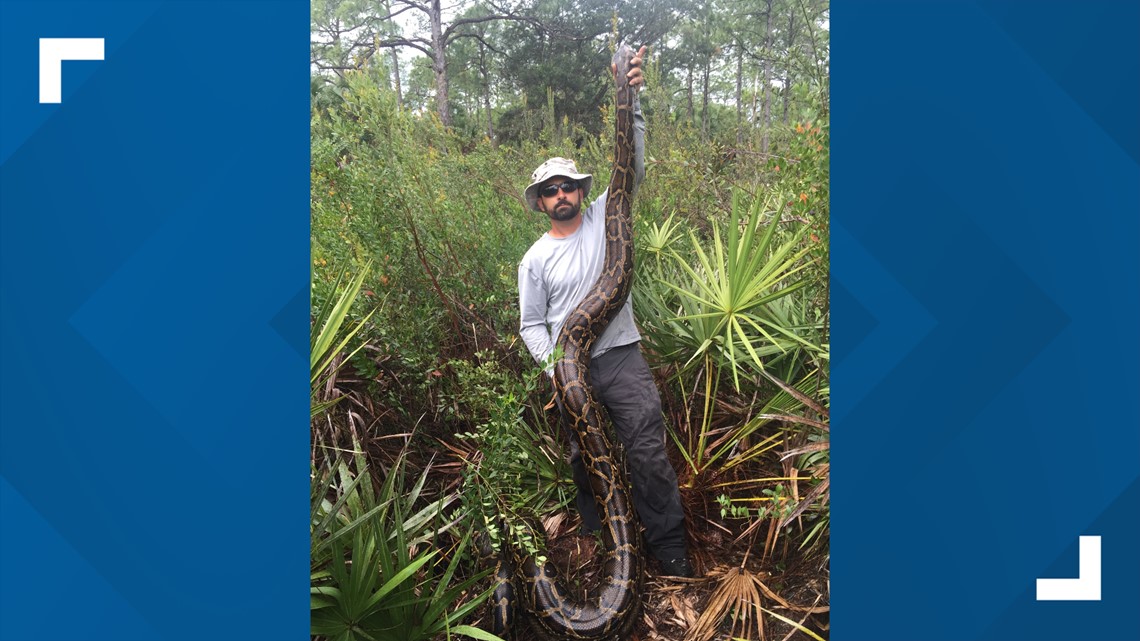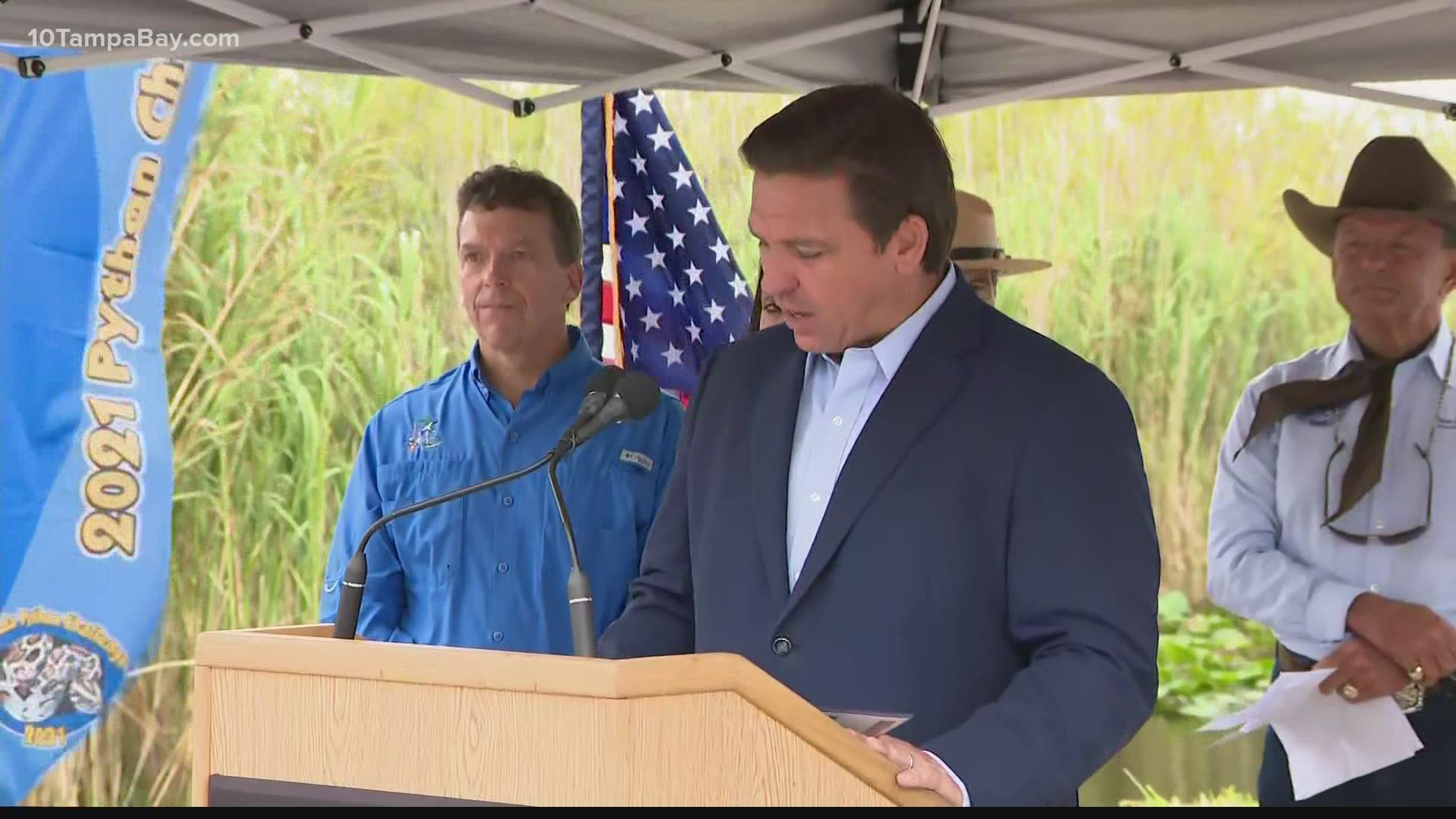NAPLES, Fla — Editor's Note: The video above is from when Gov. Ron DeSantis kicked off the Python challenge in early June 2021.
Over the course of five years, Florida biologists were able to remove more than 20,000 pounds worth of pythons by tracking the reptiles' movements across the southwestern portion of the state.
The research that was conducted is the longest and largest tracking study of the Burmese pythons to date.
The experiment began in 2013 when researchers at the Conservancy of Southwest Florida implanted radio transmitters into a handful of pythons and released them into Florida's wilderness. The reptiles acted as scouts, leading scientists to areas where other pythons may inhabit.
What followed were years of trekking through marshland, capturing and tagging several pythons. Researchers were taken all across the region, poking their heads in Gopher Tortoise burrows that spanned across Naples, Rookery Bay National Estuarine Research Reserve, Collier Seminole State Park and Picayune Strand State Forest.
By the end of the study, scientists had tracked 25 pythons in a 100-mile radius. What they discovered was male pythons had a home range of 2.6 square miles while females had a home range of 1.1 square miles.
Ian Bartoszek, author of the study, and the conservancy's environmental science project manager says by understanding the spatial ecology of pythons and the areas they inhabit, scientists can develop better techniques for capturing the invasive reptiles.
"The Burmese python is impacting our native wildlife considerably," Bartoszek says. "They are very much a generalist apex predator."
He says the pythons' dominant presence in Florida is a result of the pet trade. Many of the reptiles were released or escaped at some point.
Because of the lack of natural predators in the area, they've been able to consume animals as small as birds and as large as deer with no threat to their reproduction. Bartoszek says, at this point, no one knows how many pythons exist in the state.


In order to slow down the rate at which they multiply, researchers discovered that they would have to utilize male pythons during their mating season. Between November and April, many of the males that were being tracked led researchers to areas where they reproduced with females.
Of the 20,000 pounds that were captured by researchers, 75 percent were females.
"These are egg-laying machines. I would take one female for a couple dozen males any day," Bartoszek says.
The pythons that were captured were humanely euthanized and studied for further research.
- Number of people dead in Surfside condo collapse climbs to 10
- Concrete cracking, 'major' structural damage reported at Surfside condo in 2018
- Alligator bites man in North Venice
- Investigation finds Commissioner Vanessa Baugh won't face criminal charges for vaccine 'VIP list'
- A Frank Conversation: New podcast explores race, religion, politics and more
►Breaking news and weather alerts: Get the free 10 Tampa Bay app
►Stay In the Know! Sign up now for the Brightside Blend Newsletter

